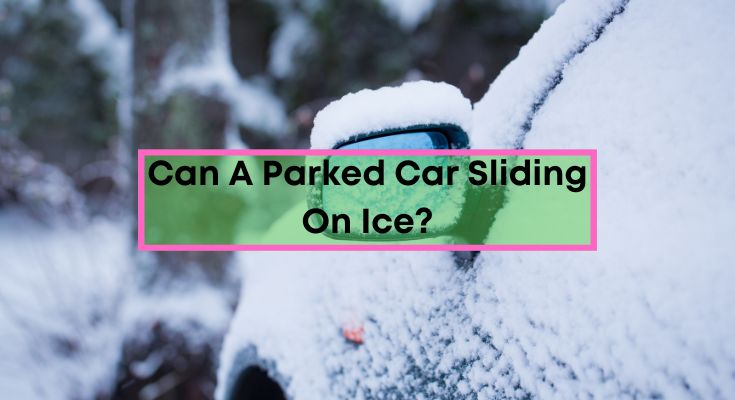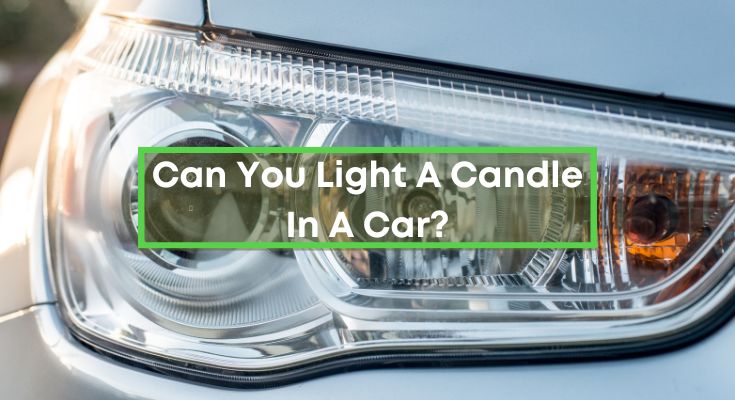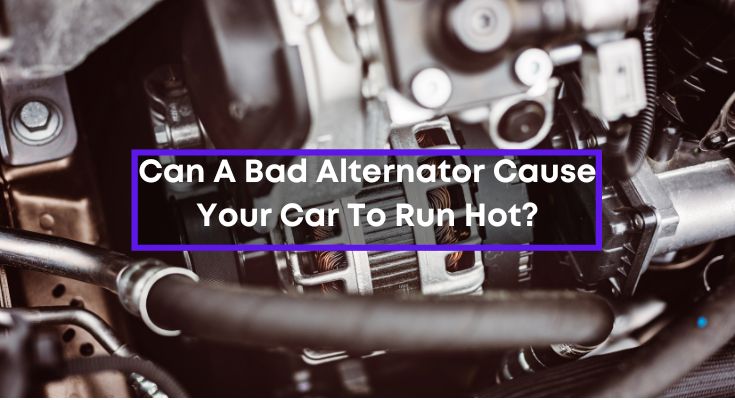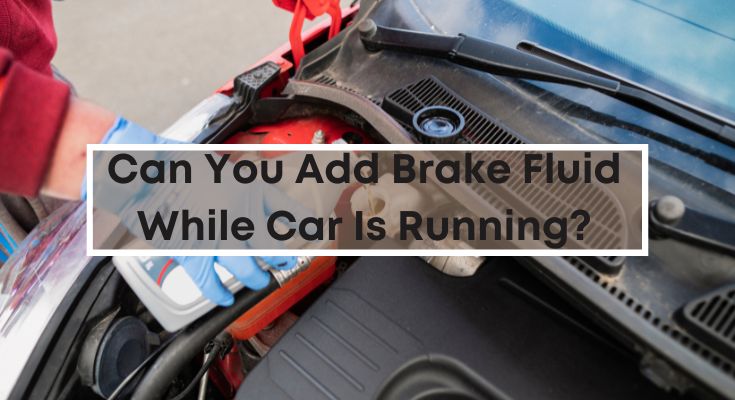Can A Parked Car Sliding On Ice
If a parked car is sliding on ice and hits another car, it is possible for the parked car to cause damage to the other car. If the parked car is sliding on ice and hits another car that is moving, the parked car may not cause as much damage because the other car is already in motion. If a parked car is sliding on ice, it can be stopped by using the brakes. The best way to stop a sliding car is to pump the brakes lightly so that the wheels can gain traction on the road. If the car is sliding too fast, the driver may need to use the emergency brake. If a car is sliding on ice, it can be difficult to stop.
The best way to stop a car from sliding on ice is to slowly reduce your speed and avoid sudden braking or turning. You may also want to use sand or salt on the icy areas to help increase traction.

Can a parked car sliding on ice damage the paint?
It’s possible for a parked car sliding on ice to damage the paint. If the car slides into something, the paint can be scratched or chipped. Also, if the car slides into something and causes the car to spin, the paint can be damaged from the friction. A parked car sliding on ice can damage the paint. The paint can be chipped, scratched, or even peeled off. The damage can be minor or major, depending on the speed and distance the car slides. If you’re concerned about your car’s paint, it’s best to avoid sliding on ice altogether.
How to prevent your car from sliding on ice.
When your car starts to slide on ice, the first thing you want to do is stay calm. It is important not to brake or turn sharply, as this can cause you to lose control of the car. Instead, gently ease your foot off the gas pedal and steer in the direction you want the car to go. If you have front-wheel drive, you may want to shift into a lower gear to help you keep traction. If your car starts to spin, take your foot off the gas pedal completely and steer in the direction of the spin to help stop it. There are a few things you can do to prevent your car from sliding on ice. First, make sure your tires are properly inflated. Second, avoid sudden stops and starts. Third, drive slowly and carefully. And fourth, if you do start to slide, turn your wheel in the direction you want to go. When your car starts to slide on ice, it can be difficult to regain control. To prevent your car from sliding on ice, you can take some preventative measures. First, make sure your tires are properly inflated. This will give you more traction on the road. Second, avoid driving too fast. If you are driving too fast, it will be more difficult to stop or turn. Third, avoid sudden changes in direction. If you have to turn, do it slowly and smoothly. Finally, be extra careful on bridges and overpasses. These areas are more likely to be icy.
How to fix damaged paint from sliding on ice.
Assuming you are talking about a car, the first step is to assess the damage. If it is just a few scratches, you can try to buff them out with a polishing compound. If the damage is more significant, you will need to sand the area down and repaint it.
To avoid future damage, make sure to keep your car clean and waxed. In the winter, be sure to wash it more frequently to remove any salt or other debris that could cause corrosion. Also, invest in a good set of winter tires to help your car grip the road better and give you more control. Paint that has been damaged from sliding on ice can be fixed by sanding down the damaged area and repainting it. If the damage is extensive, it may be necessary to replace the entire piece of paint. To avoid this, it is important to take care of the paint and to not let it slide on ice.
How to deal with a car that has already slid on ice.
First, if your car has already slid on ice, do not panic. Second, gently turn your steering wheel in the direction you want the car to go. If your car starts to spin, turn your steering wheel in the opposite direction. Finally, do not brake suddenly or accelerate quickly, as this could cause your car to lose control. If you are already sliding on ice, there is not much you can do to prevent it. You will need to remain calm and avoid overcorrecting the steering wheel. Overcorrecting can cause you to lose control of the car entirely. Instead, gently turn the wheel in the direction you want the car to go. If you have traction control, do not turn it off. It can help you regain control of the car. If you do not have traction control, gently pump the brakes to slow down without locking up the wheels.
How to prevent future ice damage to your car’s paint.
It’s no secret that ice and snow can wreak havoc on your car’s paint job. But there are a few things you can do to prevent future ice damage.
First, make sure you regularly wash and wax your car. This will create a barrier between the paint and the elements.
Second, if you know ice is coming, park in a garage or covered area. This will protect your car from the worst of the weather.
Finally, if you do get ice on your car, remove it as soon as possible. Scraping it off with a credit card can actually damage the paint, so it’s best to use a soft cloth or brush.
By following these simple tips, you can keep your car’s paint looking great for years to come.
How to keep your car’s paint looking good in the winter.
Your car’s paint is one of the first things to suffer in the winter. The cold weather and road salt can take their toll, leaving your paint dull and chipped. Here are a few tips to help keep your car’s paint looking good all winter long.
Wash your car regularly. This may seem like a no-brainer, but it’s important to wash off any road salt or dirt that could damage your paint. Use a mild soap and a soft sponge or cloth, and be sure to rinse thoroughly.
Wax your car. A good coat of wax will help protect your paint from the elements. Choose a quality wax and apply it according to the instructions.
Touch up any chips or scratches. Winter is the time to take care of those small paint chips and scratches. Touching them up now will help prevent rust and further damage.
How to protect your car’s paint from winter weather.
1.Wash and wax your car regularly. This will create a barrier between the paint and the elements.
2. Park in a garage or covered area whenever possible. This will keep the snow and ice off your car and prevent salt from corroding the paint.
3. Invest in a good set of car covers. This will provide an extra layer of protection against the elements.
4. Avoid using harsh chemicals to clean your car. This can strip the wax off the paint and damage the finish.
5. Get your car detailed regularly. This will remove any build-up of dirt and grime that can damage the paint.
Is it bad to leave snow on your parked car?
Leaving snow on your parked car is not a good idea for several reasons. First, it can damage your car’s paint job. Second, it can cause your car to rust. Third, it can make your car’s windows more difficult to see through. Finally, it can make your car’s tires more likely to slip on ice.
Will a car wash remove ice?
A car wash will not remove ice from your car. You will need to scrape the ice off yourself before taking your car through the car wash. The high pressure of the car wash could actually crack your windshield if there is ice on it.
Is it bad to leave ice on your car?
It’s not ideal to leave ice on your car, as it can cause the paint to become dull and damaged over time. Additionally, if the ice melts and then re-freezes, it can cause the glass to crack. However, if you must leave ice on your car, be sure to use a soft cloth or brush to avoid scratching the paint, and be sure to thaw the ice completely before driving.
What do you do if your car starts to slide on ice?
If your car starts to slide on ice, the best thing to do is to remain calm and avoid making any sudden movements. Take your foot off the gas pedal and gently turn the steering wheel in the direction you want the car to go. If you have to brake, do so gently and avoid pumping the brakes.
Conclusion
Yes, if a parked car sliding on ice causes an accident, it can be serious. The car could hit another car, a pedestrian, or a bicyclist. No, a parked car sliding on ice cannot be used to stop a car on the road that is sliding on ice.






